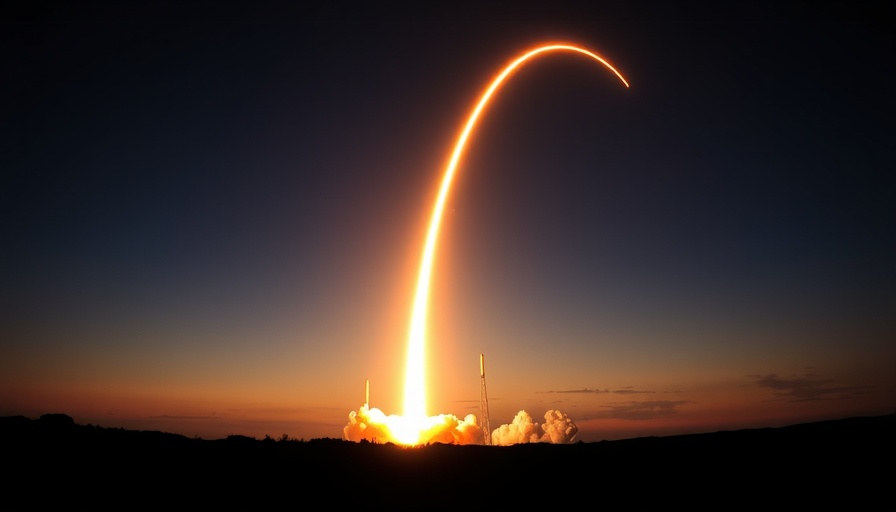
Japan's Resilience Lander: A Big Leap Towards Moon Exploration
Japanese startup ispace is gearing up for what they hope will be a landmark achievement in lunar exploration with their Resilience lander, scheduled for a June 6 touchdown. This mission represents ispace's second attempt to land on the moon, following a failed effort in April 2023. Their initiative comes on the heels of U.S. company Firefly Aerospace's successful landing of the Blue Ghost spacecraft, which shared a Falcon 9 rocket ride with Resilience.
A Learning Curve: Turning Setbacks into Successes
After their initial landing attempt ended in failure, ispace has focused on leveraging the lessons learned from that experience to enhance their current mission. CEO Takeshi Hakamada commented, "Compared to Mission 1, Mission 2 is progressing as smoothly as can be expected from the moment of launch." This reflects a crucial shift in approach, as companies in the space industry increasingly view missions as opportunities for learning and adaptation.
The Challenge of Lunar Landing: Technology and Techniques
Landing on the moon is no simple feat. Spacecraft must rely solely on controlled thruster burns due to the lack of atmosphere—making parachutes ineffective. The ispace team is employing innovative techniques for a soft landing, crucial for navigating the hazardous terrain of the moon’s surface. This meticulous process emphasizes the importance of precision and control in achieving a successful lunar touchdown.
Growing Competition in Lunar Exploration
As private companies look to expand their footprints in space, ispace is not alone. Intuitive Machines, another U.S. firm, has recently launched its Athena probe to land on the moon—further fueling competition in commercial space exploration. The increase in private sector participation points to a future where moon missions could become more frequent and cost-effective, promoting wider access to lunar resources and scientific exploration.
What if ispace Succeeds?
If ispace successfully lands the Resilience on June 6, it would not only mark a significant achievement for the company but also showcase Japan's capabilities in the space sector. This success could pave the way for increased investment in space technologies and inspire further innovation as companies strive to capitalize on new opportunities in space exploration.
Conclusion: A New Era Awaits
The stakes are high as ispace prepares for its lunar landing attempt. With the experience from past missions and the pressure to succeed, this could mark the beginning of a new era in private lunar exploration. Enthusiasts and experts alike will be watching closely to see how the mission unfolds, keeping in mind the transformative potential for space exploration on a global scale.
 Add Row
Add Row  Add
Add 




Write A Comment